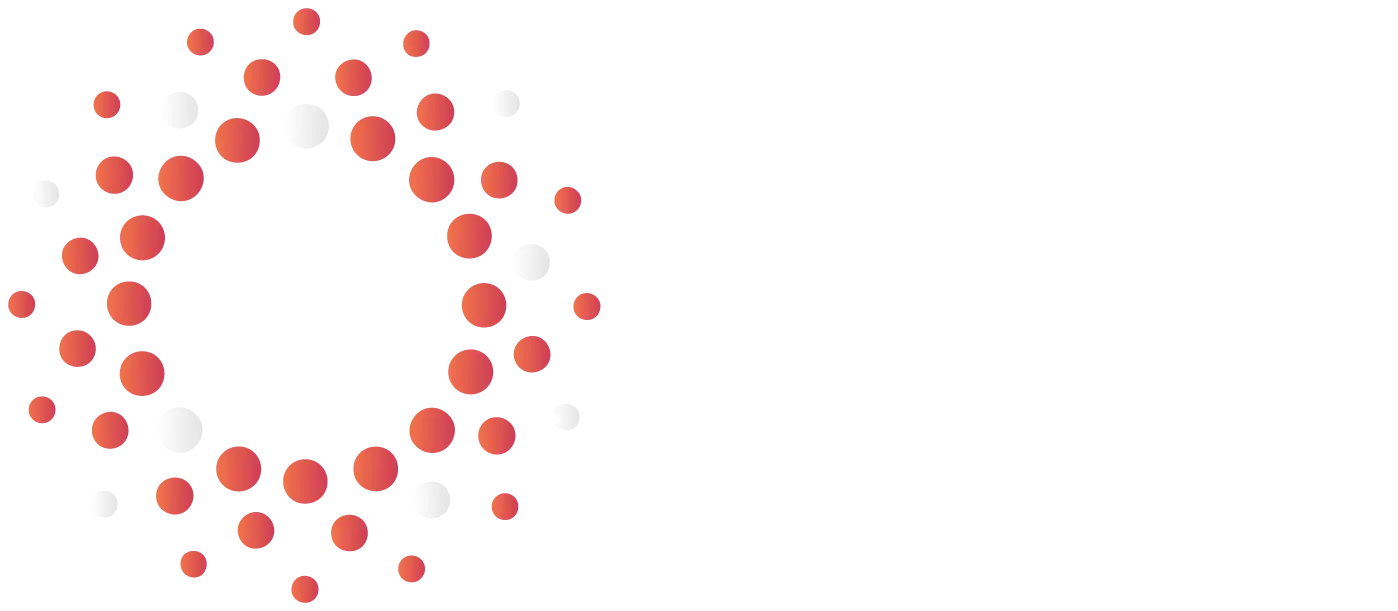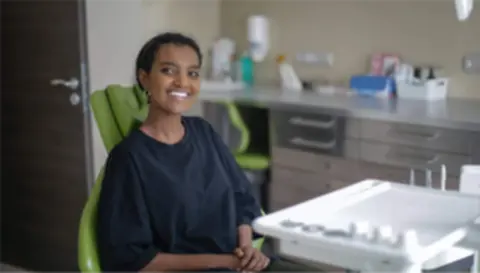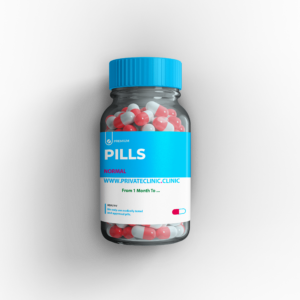Safe abortions are medical procedures performed to terminate a pregnancy in a manner that minimizes the risk to the woman’s health and well-being. It’s important to note that the legality and availability of abortion services vary widely from country to country, and even within regions of the same country. Access to safe abortion services is a critical aspect of reproductive healthcare, as unsafe abortions can lead to serious health complications and even death.
Here are some key points related to safe abortions:
1. Legal Status: The legal status of abortion varies globally. Some countries permit abortion under various circumstances, such as a woman’s health or fetal abnormalities, while others have strict restrictions or bans. The legal framework greatly influences the availability and safety of abortion services.
2. Types of Abortion:
– Medical Abortion: This involves taking medication (such as mifepristone and misoprostol) under medical supervision to terminate a pregnancy. It is typically used within the first 10 weeks of pregnancy and is considered safe when administered correctly.
– Surgical Abortion: Surgical procedures to terminate a pregnancy include suction aspiration and dilation and evacuation (D&E). The choice of procedure depends on the gestational age of the pregnancy and the woman’s medical condition.
3. Healthcare Provider: Safe abortions should be performed by trained healthcare professionals, such as doctors, nurses, or midwives, in a medical facility that meets established safety and hygiene standards.
4. Counseling and Informed Consent: Women seeking abortions should receive counseling and accurate information about the procedure, its risks, and available alternatives. Informed consent should be obtained before the abortion.
5. Privacy and Confidentiality: Healthcare providers should ensure the privacy and confidentiality of patients seeking abortion services, protecting their personal and medical information.
6. Post-Abortion Care: Adequate post-abortion care is essential to monitor for any complications and provide emotional support to the patient.
7. Access and Affordability: Access to safe abortion services can be influenced by factors such as geographical location, socioeconomic status, and legal restrictions. Efforts should be made to ensure equitable access to these services.
8. Harm Reduction: Reducing harm associated with unsafe abortions is essential where legal and safe abortion services are not available. This includes providing information on safer self-induction methods and emergency care for complications.
9. Stigma and Discrimination: Addressing societal stigma and discrimination against women seeking abortions is crucial for their well-being and access to safe healthcare.
10. Legal Advocacy: Advocacy efforts by organizations and individuals play a role in improving access to safe abortions and challenging restrictive laws where necessary.
It’s important for individuals to seek information and support from reputable healthcare providers, organizations, and agencies when considering or seeking an abortion. The availability of safe abortion services and the legal context can vary significantly, so understanding the specific situation in your region is essential for making informed decisions about reproductive healthcare.
Womens Abortion Clinic
We are a private abortion alternative to planned parenthood.
Specializing in early pregnancy, offer abortion counseling and review important abortion facts with you.
Our office provides an environment that is safe and private, where our Doctors offer compassionate and expert care.
We specialize in non-surgical abortion, medical abortion, the abortion pill, aspiration abortion and natural abortions.
Our private abortion doctors are trained with the most modern technology and safest abortion methods that most abortion centers do not offer.
Methods of non surgical abortion
All of our gynecologists have specialized training in abortion care. and safe abortions.
A pregnancy is considered to be early when it is within the first twelve weeks.
There are two methods that are considered to be non-surgical methods of terminating an early pregnancy.
These two methods are the Aspiration Procedure and the Abortion Pill.
They are safe, gentle, and natural methods of terminating an early pregnancy.
These two non-surgical early abortion methods end a pregnancy before it develops.
Safe Abortions
Safe abortion refers to the termination of a pregnancy in a way that is medically safe and minimizes the risk of complications.
It involves procedures or medications that are performed under conditions that ensure the health and well-being of the person seeking an abortion.
The safety of an abortion is influenced by factors such as the gestational age of the pregnancy, the method used, the skill of the provider, and the conditions under which the procedure takes place.
Non Surgical Abortion
Medical abortion, also known as nonsurgical abortion, is one way to terminate an early pregnancy using medications.
Medical abortion is provided by trained health care providers in private office settings, family planning clinics and hospitals.
A medical abortion can be performed from the time a woman suspects and confirms she is pregnant up until nine weeks from her last menstrual period.

Abortion Clinic
Abortion is a medical procedure that ends a pregnancy. In-clinic abortion procedures are safe and effective.
In-clinic abortions are sometimes called surgical abortions, though they’re generally an in-office procedure, not surgery.
Supporting Environment
Our staff recognise how difficult this decision can be and aim to help by providing a supporting environment,
whether you require counselling to help you make a decision or counselling after an abortion to help you feel completely supported.
We have Experienced Doctors
At Abortion clinic we have team of experienced doctors who will take your health very seriously.
Medical Termination
We offer a wide range of sexual and reproductive health care services.
1 Family Planning
2 Sexually Transmitted Infection (STI) Prevention and Treatment
3 Infertility Services
Professional & Friendly Staff
Our team of professional are well trained to always give you the best services.
Birth Control Pill
Menstruation — aka having your period — is when blood and tissue from your uterus comes out of your vagina. It usually happens every month.
Know About Menstruation
Menstruation — aka having your period — is when blood and tissue from your uterus comes out of your vagina. It usually happens every month.
Have some Questions?
The abortion pill causes cramping and bleeding that can last several hours or more. You can be at home, or wherever is comfortable for you. Plan on taking it easy for the day.
What do I need to do before I take the abortion pill?
Before you take the abortion pill, you’ll meet with your nurse, doctor, or health center staff to talk about whether abortion is the right decision for you, and what your abortion options are.
If you go to the health center in person, you may get an exam, lab tests, and an ultrasound to figure out how far into your pregnancy you are. In some states you can do a virtual visit, and if lab tests are needed you can do that at a local lab test provider.
Your nurse or doctor will let you know if there’s anything else you need to do to prepare for your abortion. They’ll give you written instructions on how to take your pills. You will have access to a caring professional through the process — you’ll get a number you can call 24/7 if you have any questions or concerns.
You’ll have a lot of bleeding and cramping after you take misoprostol, so plan ahead to make the process more comfortable. You can be at home, or wherever is comfortable for you to rest. You may also want to have someone you trust with you (or nearby) that you can call if you need anything. The abortion process takes several hours, so try to clear your schedule for the day and just focus on caring for yourself if you can.
Stock up on maxi pads, food, books, movies, or whatever you like to help pass the time, and a heating pad for cramps. Make sure you have some pain medicine like ibuprofen — but don’t take aspirin because it can make you bleed more.
What happens during a medication abortion?
The abortion pill process has several steps and usually includes 2 different medicines: mifepristone and misoprostol. You can also have an abortion using only misoprostol.
First, you take mifepristone. This pill stops the pregnancy from growing. Most people don’t feel anything after taking the mifepristone.
The second medicine is misoprostol. You’ll either take the misoprostol right away, or up to 48 hours after you take the first pill — your doctor or nurse will let you know how and when to take it. This medicine causes cramping and bleeding that empties your uterus. The pregnancy tissue will come out through your vagina. The process is very similar to an early miscarriage.
You can take pain medicine like ibuprofen about 30 minutes before you take the misoprostol to help with cramps. Don’t take aspirin, because it can make you bleed more. You can also take anti-nausea medicine if your doctor or nurse gives it to you to help with side effects.
You can expect the cramping and bleeding to start 1-4 hours after taking the misoprostol. It’s normal to see large blood clots (up to the size of a lemon) or clumps of tissue during the abortion. But the pregnancy itself is very small — at 8 weeks, an embryo is about ¼ to ½ inch long. You may not see it when it comes out, especially if you’re less than 8 weeks pregnant.
The cramping and bleeding can last for several hours. Most people finish passing the pregnancy tissue in 4-5 hours, but it may take longer. The cramping and bleeding slows down after the pregnancy tissue comes out. You may have cramps on and off for 1 or 2 more days.
It’s normal to have some bleeding and spotting for several weeks after your abortion. You can use pads, tampons, or a menstrual cup — whatever’s the most comfortable for you. But your nurse or doctor may recommend you use pads while the abortion is happening so you can track how much you’re bleeding.
The last step is to make sure the abortion worked. You may go back into the health center for an ultrasound or blood test. Or you’ll get a pregnancy test to take at home, followed by a phone call with your nurse or doctor if you want. These tests will make sure the abortion worked and that you’re healthy.
In the unlikely case that the abortion doesn’t work and you’re still pregnant, your doctor or nurse will discuss your options with you. You may need another dose of medicine or to have an in-clinic procedure to complete the abortion. If you have any questions or concerns during or after your abortion, Planned Parenthood can help you, even if we didn’t provide your abortion.
How does a medication abortion feel?
For most people, medication abortion feels like having an early miscarriage. You might have:
lots of cramping and aches in your belly
very heavy bleeding with large clots (If you don’t have any bleeding within 24 hours after using the second medicine, misoprostol, call your nurse or doctor.)
an upset stomach and vomiting (Your doctor or nurse may give you medicine to help with nausea.)
diarrhea
dizziness
tiredness
mild fever (99-100° F) or chills on the day you take misoprostol. If you have a fever after the day you take the misoprostol pills, call your doctor or health center right away — it could be a sign that you’re getting an infection.
To help ease pain and make you more comfortable, you can:
Take pain medication like ibuprofen (Advil or Motrin). Don’t take aspirin because it can make your bleeding worse.
Take anti-nausea medicine.
Put a heating pad or hot water bottle on your belly.
Take a shower.
Sit on the toilet.
Have someone rub your back.
The cost of abortion varies depending on many things like:
- The type of abortion you need
- How far along your pregnancy is
- The state or health center where you get care
Whether you have health insurance (private or government insurance like Medicaid) that will help pay for your abortion - Whether you can get other types of financial assistance to help cover the cost of your abortion
Depending on procedure you will be consulted by a Nurse and Doctor, they will give you information about the process for your specific procedure.
It is dependent on your procedure. We usually say that you will be in no more discomfort than you would normally be with your period.
We can provide you with suitable pain relief on the day should you be uncomfortable.
8 out of 10 people do not experience pain and usually Paracetamol is enough to help you feel comfortable. Heat packs also work effectively.
You may have cramping, bleeding, and spotting after your abortion. You’ll want to rest for a while, but most people are back to their usual activities the next day.
What can I expect after having an abortion?
You can have sex as soon as you feel ready.
You can get pregnant right after your abortion, so it’s a good idea to talk with your nurse or doctor about birth control as soon as you can — they can help you find a method that’s right for you. You can start using birth control immediately after having an abortion.
Some doctors, abortion clinics, and Planned Parenthood health centers can put an IUD in your uterus right after your abortion, during the same procedure.
This is really convenient because you’ll get super effective birth control without having to go to a separate appointment. Ask about getting an IUD at the same time as your abortion when you call to make your appointment.
It varies from person to person. You’ll probably have some bleeding and cramping after your abortion, so plan on resting in a comfortable place afterwards.
Most people are back to their regular activities within a day, but recovery after a D&E can take a little longer. You can take pain medication like acetaminophen (Tylenol) or ibuprofen (Advil or Motrin).
You can also put a heating pad or hot water bottle on your belly or have someone rub your back. If you’re not feeling well after a couple of days, call your doctor or nurse.
You may have a range of emotions after having an abortion. Studies show that most people feel relief, but sometimes people feel sad or regretful. Many people feel all these things together.
However you feel is totally normal — everybody’s experience is different. But if your mood keeps you from doing the things you usually do each day, call your doctor or nurse for help.
You can also call Exhale or All-Options for free, confidential, and non-judgmental emotional support after an abortion — no matter how you’re feeling. For spiritual support before, during, or after an abortion.
Did you know that abortion pills can be used to end early pregnancies? Watch this video to learn more:
At Women’s and Abortion Clinic, we offer the safest and most advanced abortions methods. We aim at providing optimal care and helping our patients make a decision about which method is right for them.
We are recognized as one of the leading private practice abortion providers with over experience in abortion care. All of our gynecologists have specialized training in abortion care. and safe abortions.
A pregnancy is considered to be early when it is within the first twelve weeks. There are two methods that are considered to be non-surgical methods of terminating an early pregnancy.
These two methods are the Aspiration Procedure and the Abortion Pill. They are safe, gentle, and natural methods of terminating an early pregnancy. These two non-surgical early abortion methods end a pregnancy before it develops.
Medication abortion is very safe. In fact, it’s safer than many other medicines like penicillin, Tylenol, and Viagra. Serious problems are rare, but like all medicines, there can be risks.
What are the possible risks of taking the abortion pill?
Medication abortion has been used safely in the South Africa for more than 20 years. Serious complications are really rare, but can happen. These include:
the abortion pills don’t work and the pregnancy doesn’t end
some of the pregnancy tissue is left in your uterus
blood clots in your uterus
bleeding too much or too long
infection
allergic reaction to one of the medicines
These problems aren’t common. And if they do happen, they’re usually easy to take care of with medicine or other treatments.
In extremely rare cases, some complications can be very serious or even life threatening. Call your doctor or health center right away if you:
have no bleeding within 24 hours after you take misoprostol
have heavy bleeding from your vagina that soaks through more than 2 maxi pads in an hour, for 2 or more hours in a row
pass large clots (bigger than a lemon) for more than 2 hours
have belly pain or cramps that don’t get better with pain medication
have a fever of 100.4 or higher more than 24 hours after taking misoprostol
have weakness, nausea, vomiting, and/or diarrhea that lasts more than 24 hours after taking misoprostol
You should start to feel better the day after your abortion. Feeling sick with nausea, vomiting, diarrhea, belly pain, or a fever for more than 24 hours after taking misoprostol can be a sign of infection. Call your doctor or nurse right away if you have any of those symptoms. Serious problems can cause death in the most rare cases, but abortion is typically very safe. In fact, pregnancy and childbirth is riskier than most abortions.
Do you wonder how much an abortion costs?
Or are you simply looking for help without the pressure?
It is typical for an abortion to cost anywhere out of pocket. This cost range is based upon a number of factors, including stage of pregnancy, type of abortion procedure, geographical region and choice of anesthesia.
Useful Links
- Women’s abortion clinic
- Misoprostol pills
- Women Clinic
- Abortion Clinic
- Medical Abortion
- Safe Abortions
- Abortion Pills
- Non Surgical Abortion
- Surgical Abortion
- Women’s clinic
- Birth Control Pill
- Women’s clinic near me
- Abortion clinic near me
- Termination pills
- Buy abortion pills
- Health and Wellness
- Menstruation
- Contact





